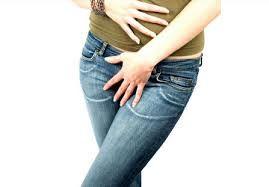
Many women experience occasional bouts of vaginal thrush caused by a common yeast called Candida. It is generally harmless, but can be uncomfortable. It does not cause damage to the vagina, uterus and will not harm your baby if you are pregnant.
Causes
Many women have Candida living naturally in their vagina without it causing any symptoms. A change in the natural balance can cause growth of the Candida and the symptoms of thrush.
The most common causes of thrush are:
 Taking antibiotics
Taking antibiotics
 Antibiotics can kill off the good bacteria in the vagina which then allows the Candida to grow and cause symptoms.
Antibiotics can kill off the good bacteria in the vagina which then allows the Candida to grow and cause symptoms.
 Being pregnant
Being pregnant
 Pregnancy changes the hormone levels in the body increasing the chances of developing thrush.
Pregnancy changes the hormone levels in the body increasing the chances of developing thrush.
 Having poorly controlled diabetes
Having poorly controlled diabetes
 Diabetic patients whose blood glucose levels are not well controlled are more likely to develop thrush.
Diabetic patients whose blood glucose levels are not well controlled are more likely to develop thrush.
 Having a weakened immune system
Having a weakened immune system
 If your immune system is compromised, such as during chemotherapy, this limits the body’s ability to fight off the Candida infection which can lead to the development of thrush.
If your immune system is compromised, such as during chemotherapy, this limits the body’s ability to fight off the Candida infection which can lead to the development of thrush.
Symptoms
Typical symptoms include:
 Itching and soreness around the entrance of the vagina.
Itching and soreness around the entrance of the vagina.
 Pain during sexual intercourse.
Pain during sexual intercourse.
 A stinging sensation when you urinate
A stinging sensation when you urinate
 Vaginal discharge, although this isn't always present; the discharge is usually odourless and it can be thin and watery, or thick and white like cottage cheese.
Vaginal discharge, although this isn't always present; the discharge is usually odourless and it can be thin and watery, or thick and white like cottage cheese.
Treatment
Topical treatments
Creams and pessaries (a specially shaped pill that is inserted into the vagina to deliver medication) containing clotrimazole (e.g. Canesten) are available over-the-counter in your totalhealth pharmacy. It is recommended to use both the cream and pessary to treat the infection on the external skin and also internally. These are generally effective in treating the infection within 1-3 days depending on the presentation used. Topical treatments are safe and effective to use when you are pregnant or breast feeding. Your doctor can prescribe other topical treatments if the over-the-counter ones are not effective.
Oral treatments
The most commonly used oral treatment is a single dose of fluconazole 150mg. This medication is currently only available on prescription in Ireland.
Alternative treatments
Applying live yogurt or having tea tree or bicarbonate of soda baths may help to soothe the irritation, but there is little clinical evidence to show that it is effective in treating thrush.
totalhealth pharmacist’s advice
You should see your doctor:
 If you are under 16 or over 60 years of age.
If you are under 16 or over 60 years of age.
 The first time you experience symptoms as a number of conditions have similar symptoms.
The first time you experience symptoms as a number of conditions have similar symptoms.
 If you are pregnant.
If you are pregnant.
 If you experience recurrent infections i.e. more than twice in six months.
If you experience recurrent infections i.e. more than twice in six months.
 If over-the-counter topical treatments are not effective.
If over-the-counter topical treatments are not effective.
 If you have any pain or unusual bleeding.
If you have any pain or unusual bleeding.
To reduce the risk of developing thrush:
 Wash your vaginal area with water and unscented soap.
Wash your vaginal area with water and unscented soap.
 Avoid vaginal douches.
Avoid vaginal douches.
 Avoid tight fitting underwear or tights. Loose cotton underwear is best.
Avoid tight fitting underwear or tights. Loose cotton underwear is best.
 If you are prone to thrush and are prescribed antibiotics, have some treatment available to use if you develop symptoms.
If you are prone to thrush and are prescribed antibiotics, have some treatment available to use if you develop symptoms.
 Use a lubricant during sexual intercourse, if necessary.
Use a lubricant during sexual intercourse, if necessary.
 Some pessaries and creams may damage latex condoms and diaphragms and affect their use as a contraceptive. You should use alternative methods of contraception during treatment and for several days afterwards.
Some pessaries and creams may damage latex condoms and diaphragms and affect their use as a contraceptive. You should use alternative methods of contraception during treatment and for several days afterwards.
 Thrush is not a sexually transmitted infection (STI), but male sexual partners may need treatment if they have symptoms such as irritation, redness or discharge at the head of the penis. Men can be easily treated topically using clotrimazole cream (Canesten) from your totalhealth pharmacy or fluconazole prescribed by their doctor.
Thrush is not a sexually transmitted infection (STI), but male sexual partners may need treatment if they have symptoms such as irritation, redness or discharge at the head of the penis. Men can be easily treated topically using clotrimazole cream (Canesten) from your totalhealth pharmacy or fluconazole prescribed by their doctor.